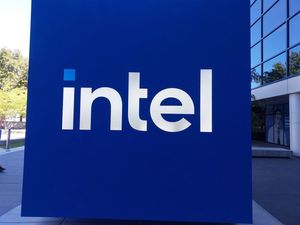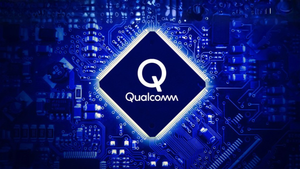
In a move poised to reshape the landscape of artificial intelligence hardware, Meta Platforms (NASDAQ: META) is reportedly in advanced discussions to acquire Rivos, a promising AI chip startup. Emerging just days ago, around September 30, 2025, these rumors, initially reported by Bloomberg News and subsequently corroborated by other tech outlets, signal a pivotal moment for the social media giant. This potential acquisition is not merely about expanding Meta's portfolio; it represents a strategic, aggressive push to bolster its internal AI silicon program, significantly reduce its multi-billion-dollar reliance on Nvidia (NASDAQ: NVDA) GPUs, and gain tighter control over its burgeoning AI infrastructure. The implications of such a deal could reverberate across the tech industry, intensifying the race for AI hardware supremacy.
Meta's reported frustrations with the pace of its own Meta Training and Inference Accelerator (MTIA) chip development have fueled this pursuit. CEO Mark Zuckerberg is said to be keen on accelerating the company's capabilities in custom silicon, viewing it as critical to powering everything from its vast social media algorithms to its ambitious metaverse projects. By integrating Rivos's expertise and technology, Meta aims to fast-track its journey towards AI hardware independence, optimize performance for its unique workloads, and ultimately achieve substantial long-term cost savings.
The Technical Core: Rivos's RISC-V Prowess Meets Meta's MTIA Ambitions
The heart of Meta's interest in Rivos lies in the startup's specialized expertise in designing GPUs and AI accelerators built upon the open-source RISC-V instruction set architecture. Unlike proprietary architectures from companies like Arm, Intel (NASDAQ: INTC), or AMD (NASDAQ: AMD), RISC-V offers unparalleled flexibility, customization, and potentially lower licensing costs, making it an attractive foundation for companies seeking to build highly tailored silicon. Rivos has reportedly focused on developing full-stack AI systems around this architecture, providing not just chip designs but also the necessary software and tools to leverage them effectively.
This technical alignment is crucial for Meta's ongoing MTIA project. The MTIA chips, which Meta has been developing in-house, reportedly in collaboration with Broadcom (NASDAQ: AVGO), are also believed to be based on the RISC-V standard. While MTIA chips have seen limited deployment within Meta's data centers, operating in tandem with Nvidia GPUs, the integration of Rivos's advanced RISC-V designs and engineering talent could provide a significant accelerant. It could enable Meta to rapidly iterate on its MTIA designs, enhancing their performance, efficiency, and scalability for tasks ranging from content ranking and recommendation engines to advanced AI model training. This move signals a deeper commitment to a modular, open-source approach to hardware, potentially diverging from the more closed ecosystems of traditional chip manufacturers.
The acquisition would allow Meta to differentiate its AI hardware strategy from existing technologies, particularly those offered by Nvidia. While Nvidia's CUDA platform and powerful GPUs remain the industry standard for AI training, Meta's tailored RISC-V-based MTIA chips, enhanced by Rivos, could offer superior performance-per-watt and cost-effectiveness for its specific, massive-scale inference and potentially even training workloads. This is not about outright replacing Nvidia overnight, but about building a complementary, highly optimized internal infrastructure that reduces dependency and provides strategic leverage. The industry is closely watching to see how this potential synergy will manifest in Meta's next generation of data centers, where custom silicon could redefine the balance of power.
Reshaping the AI Hardware Battleground
Should the acquisition materialize, Meta Platforms stands to be the primary beneficiary. The influx of Rivos's specialized talent and intellectual property would significantly de-risk and accelerate Meta's multi-year effort to develop its own custom AI silicon. This would translate into greater control over its technology stack, improved operational efficiency, and potentially billions in cost savings by reducing its reliance on costly third-party GPUs. Furthermore, having purpose-built chips could give Meta a competitive edge in deploying cutting-edge AI features faster and more efficiently across its vast ecosystem, from Instagram to the metaverse.
For Nvidia, the implications are significant, though not immediately catastrophic. Meta is one of Nvidia's largest customers, spending billions annually on its GPUs. While Meta's "dual-track approach"—continuing to invest in Nvidia platforms for immediate needs while building its own chips for long-term independence—suggests a gradual shift, a successful Rivos integration would undeniably reduce Nvidia's market share within Meta's infrastructure over time. This intensifies the competitive pressure on Nvidia, pushing it to innovate further and potentially explore new market segments or deeper partnerships with other hyperscalers. The move underscores a broader trend among tech giants to internalize chip development, a challenge Nvidia has been proactively addressing by diversifying its offerings and software ecosystem.
The ripple effect extends to other tech giants and chip startups. Companies like Google (NASDAQ: GOOGL), Amazon (NASDAQ: AMZN), and Microsoft (NASDAQ: MSFT) have already invested heavily in their own custom AI chips (TPUs, Inferentia/Trainium, Maia/Athena respectively). Meta's potential Rivos acquisition signals an escalation in this "in-house silicon" arms race, validating the strategic importance of custom hardware for AI leadership. For smaller chip startups, this could be a mixed bag: while Rivos's acquisition highlights the value of specialized AI silicon expertise, it also means one less independent player in the ecosystem, potentially leading to increased consolidation. The market positioning of companies like Cerebras Systems or Graphcore, which offer alternative AI accelerators, might also be indirectly affected as hyperscalers increasingly build their own solutions.
The Broader AI Canvas: Independence, Innovation, and Concerns
Meta's potential acquisition of Rivos fits squarely into a broader and accelerating trend within the AI landscape: the strategic imperative for major tech companies to develop their own custom silicon. This shift is driven by the insatiable demand for AI compute, the limitations of general-purpose GPUs for highly specific workloads, and the desire for greater control over performance, cost, and supply chains. It represents a maturation of the AI industry, where hardware innovation is becoming as critical as algorithmic breakthroughs. The move could foster greater innovation in chip design, particularly within the open-source RISC-V ecosystem, as more resources are poured into developing tailored solutions for diverse AI applications.
However, this trend also raises potential concerns. The increasing vertical integration by tech giants could lead to a more fragmented hardware landscape, where specialized chips are optimized for specific ecosystems, potentially hindering interoperability and the broader adoption of universal AI development tools. There's also a risk of talent drain from the broader semiconductor industry into these massive tech companies, concentrating expertise and potentially limiting the growth of independent chip innovators. Comparisons to previous AI milestones, such as the rise of deep learning or the proliferation of cloud AI services, highlight that foundational hardware shifts often precede significant advancements in AI capabilities and applications.
The impacts extend beyond just performance and cost. Greater independence in silicon development can offer significant geopolitical advantages, reducing reliance on external supply chains and enabling more resilient infrastructure. It also allows Meta to tightly integrate hardware and software, potentially unlocking new efficiencies and capabilities that are difficult to achieve with off-the-shelf components. The adoption of RISC-V, in particular, could democratize chip design in the long run, offering an alternative to proprietary architectures and fostering a more open hardware ecosystem, even as large players like Meta leverage it for their own strategic gain.
Charting the Future of Meta's AI Silicon Journey
In the near term, the integration of Rivos's team and technology into Meta's AI division will be paramount. We can expect an acceleration in the development and deployment of next-generation MTIA chips, potentially leading to more widespread use within Meta's data centers for both inference and, eventually, training workloads. The collaboration could yield more powerful and efficient custom accelerators tailored for Meta's specific needs, such as powering the complex simulations of the metaverse, enhancing content moderation, or refining recommendation algorithms across its social platforms.
Longer term, this acquisition positions Meta to become a formidable player in AI hardware, potentially challenging Nvidia's dominance in specific segments. The continuous refinement of custom silicon could lead to entirely new classes of AI applications and use cases that are currently cost-prohibitive or technically challenging with general-purpose hardware. Challenges that need to be addressed include the complexities of integrating Rivos's technology and culture, scaling up production of custom chips, and building a robust software ecosystem around the new hardware to ensure developer adoption and ease of use. Experts predict that other hyperscalers will likely double down on their own custom silicon efforts, intensifying the competition and driving further innovation in the AI chip space. The era of generic hardware for every AI task is rapidly fading, replaced by a specialized, purpose-built approach.
A New Era of AI Hardware Autonomy Dawns
Meta's reported exploration of acquiring Rivos marks a significant inflection point in its strategic pursuit of AI autonomy. The key takeaway is clear: major tech companies are no longer content to be mere consumers of AI hardware; they are becoming active architects of their own silicon destiny. This move underscores Meta's deep commitment to controlling its technological stack, reducing financial and supply chain dependencies on external vendors like Nvidia, and accelerating its AI ambitions across its diverse product portfolio, from social media to the metaverse.
This development is likely to be remembered as a critical moment in AI history, symbolizing the shift towards vertical integration in the AI industry. It highlights the growing importance of custom silicon as a competitive differentiator and a foundational element for future AI breakthroughs. The long-term impact will likely see a more diversified and specialized AI hardware market, with hyperscalers driving innovation in purpose-built chips, potentially leading to more efficient, powerful, and cost-effective AI systems.
In the coming weeks and months, the industry will be watching for official announcements regarding the Rivos acquisition, details on the integration strategy, and early benchmarks of Meta's accelerated MTIA program. The implications for Nvidia, the broader semiconductor market, and the trajectory of AI innovation will be a central theme in tech news, signaling a new era where hardware independence is paramount for AI leadership.
This content is intended for informational purposes only and represents analysis of current AI developments.
TokenRing AI delivers enterprise-grade solutions for multi-agent AI workflow orchestration, AI-powered development tools, and seamless remote collaboration platforms.
For more information, visit https://www.tokenring.ai/.





